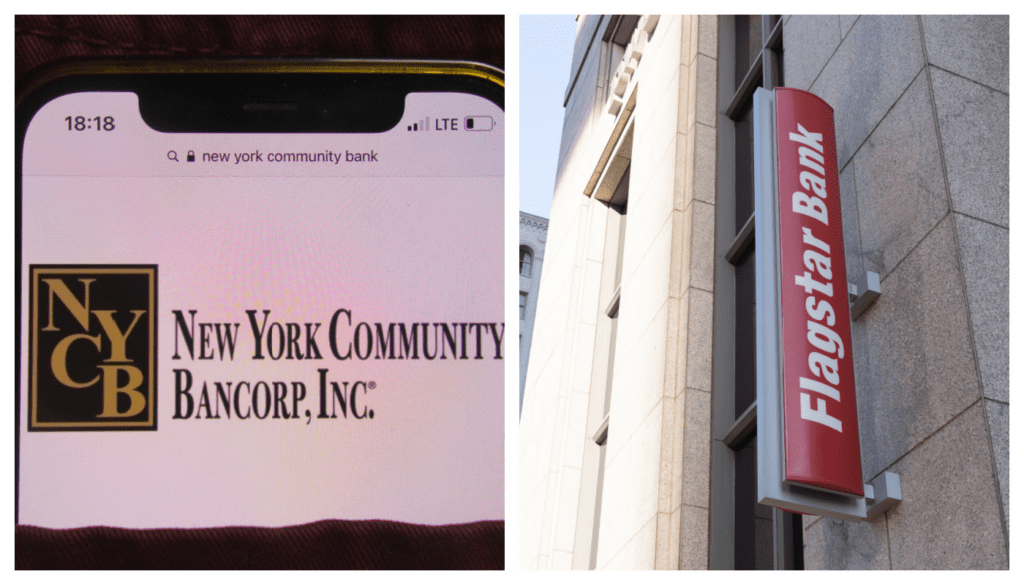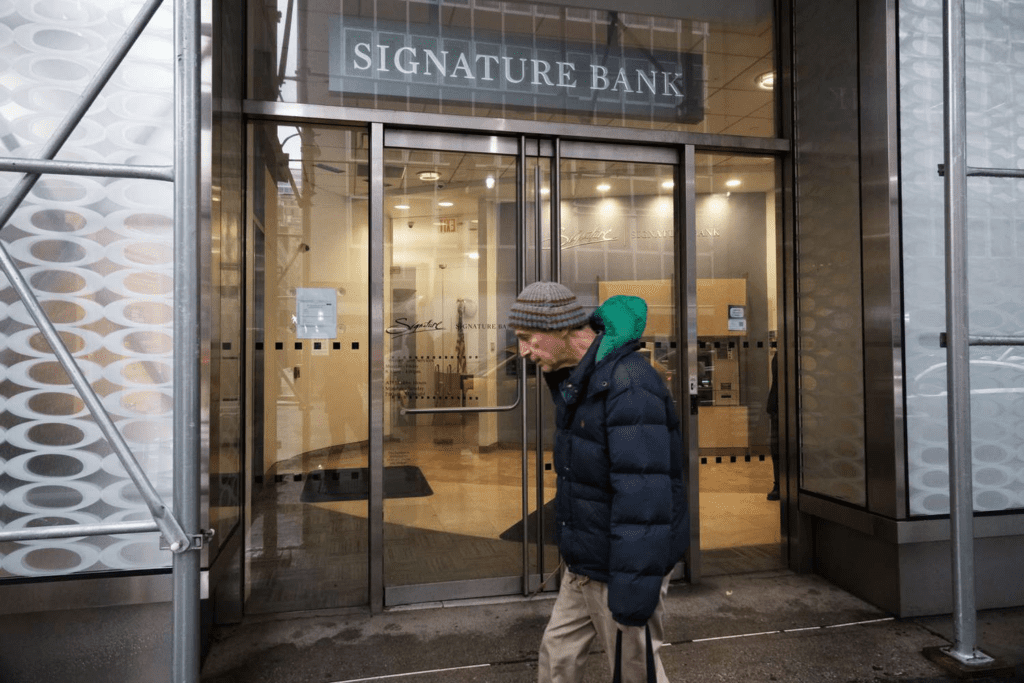Key Points:
- According to the FDIC statement, the 40 branches of Signature Bank will be handled by Flagstar Bancorp, a New York Community Bancorp subsidiary.
- Flagstar Bank’s bid does not include $4 billion in deposits tied to Signature Bank’s previous digital banking operations.
- Signature Bridge Bank depositors (not those affiliated with the digital bank) will automatically become Flagstar depositors and remain FDIC-insured up to the coverage limit.
Yesterday, the FDIC said in a press release that under a purchase agreement, non-cryptocurrency-related deposits totaled $88.6 billion at the end of last year due to the former Signature Bank (now Signature Bridge Bank) will be taken over by Flagstar Bancorp, a subsidiary of New York Community Bancorp. This will take effect from Monday (US time).

The company also purchased $38.4 billion worth of loans and other assets previously held by Signature. However, some of the $60 billion in loans will remain with the FDIC, which took over Signature after it was shut down by New York state regulators last weekend.
Flagstar Bank’s bid does not include $4 billion in deposits tied to Signature Bank’s previous digital banking operations. According to the press release, the FDIC will offer these deposits directly to customers whose accounts are linked to the digital bank.
The agreement will enable Signature Bridge Bank depositors (deposits unrelated to crypto business) to automatically become Flagstar depositors and will continue to be FDIC insured under the insurance limit.

The FDIC said Signature’s collapse would cost the Federal Deposit Insurance Fund – funded by bank payments – about $2.5 billion.
Earlier, the FDIC also stated that the sudden closure of the Signature Bank has nothing to do with the cryptocurrency sector. However, this sudden closure caused many crypto projects to freeze their deposits or quickly find another shelter to escape the wave of the banking crisis in the US.
The collapse of New York-based Signature Bank – which had $110 billion in assets last year – marked the third-largest bank demise in US history, following the collapse of the bank. The failure of Washington Mutual in 2008 and the failure of Silicon Valley Bank just two days before Signature was shut down.
DISCLAIMER: The Information on this website is provided as general market commentary and does not constitute investment advice. We encourage you to do your own research before investing.
Join us to keep track of news: https://linktr.ee/coincu
Foxy
Coincu News





















